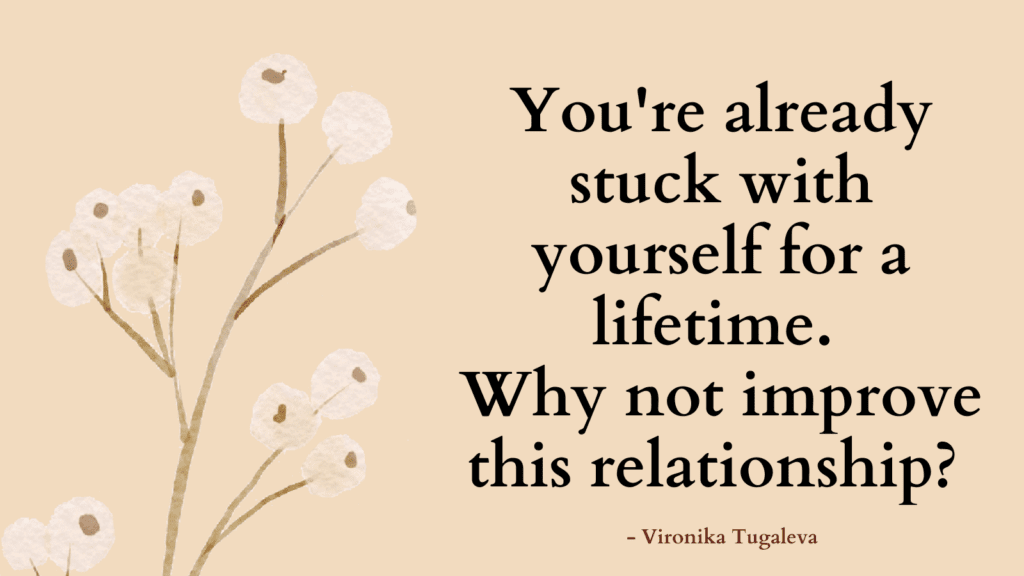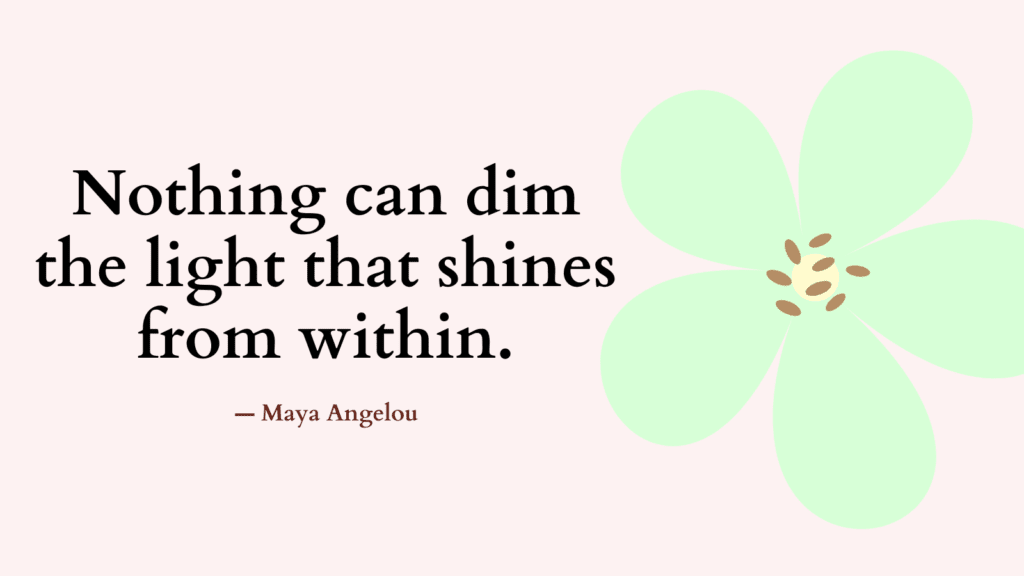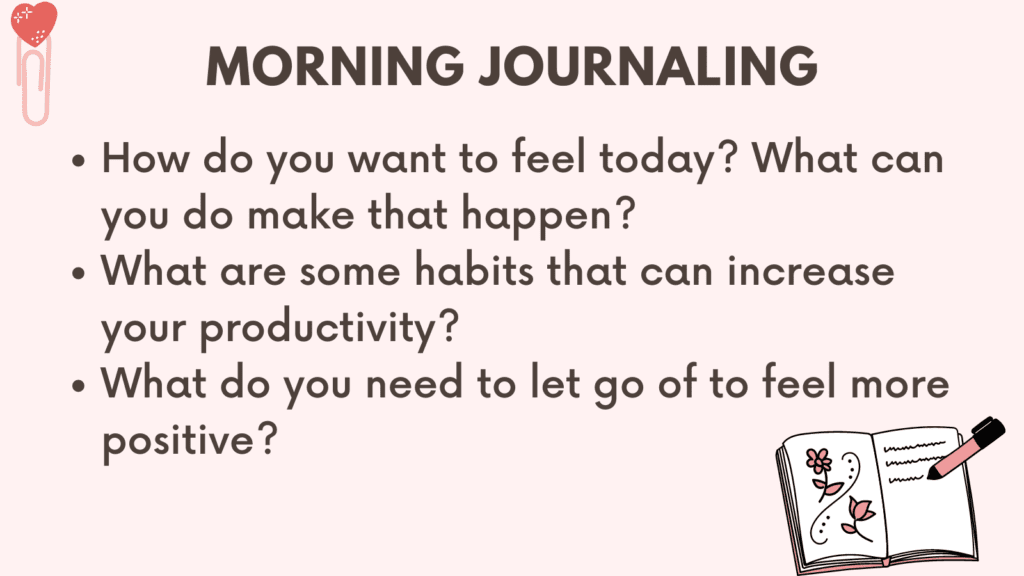This post contains some of the best healing journal prompts that will help you manage your emotions in healthy ways and heal.
What Is Journaling?
Journaling is simply writing down your thoughts and feelings to process them and gain a clearer perspective.
Journaling has been shown to help with a number of psychological issues, including stress, anxiety, and depression.
Journaling is an effective way to process your feelings and thoughts after a long day.
This tool can give you a greater understanding of things happening to you and figure out the best action step to take next.
Related: Top +100 Journal Prompts For Mental Health [+Free PDF Printable!
21 Healing Journal Prompts
1. Describe a painful memory you are ready to release today.
2. What negative thoughts or painful feelings have you been holding on to because of this memory?
3. How does holding onto these thoughts and feelings negatively impact your daily life?
4. What thoughts and feelings would you like to feel instead?
5. Is there a lesson in this memory you’ve learned?
6. Is there someone you need to forgive? If yes, write them a letter explaining how you felt and telling them everything you wish you could say to them.
7. Is there something you need to forgive yourself for? If yes, write yourself a letter.
8. Write out a mantra that encourages releasing old wounds. Repeat it every morning or as often as you can.
The following are some examples:
- I let go of my negative emotions
- I choose to move on
- As I move on, I feel liberated
- I forgive myself and I forgive others
9. What are you currently stressed or anxious about? Why is that so?
10. List your top three anxious thoughts.
11. What can you replace the anxious thoughts with?
Related: How To Stop Self-Critical Thoughts Using These Top 10 Techniques
12. Describe a time when you felt anxious about something that never happened.
13. What helped you cope with your stress or anxiety in the past?
14. What are three actionable steps you can take today to bring greater peace into your life?
15. What would you tell a friend who’s going through the same challenges?
16. What parts of your life have been affected most by your pain?
17. Write a goodbye letter to your negative and anxious thoughts.
18. List three things you’re grateful for today.
19. What do you wish you would remember on your bad days?
20. Write a letter of encouragement to yourself.
21. How can you make progress towards healing this week?
Related: Inner Teenager Healing: 14 Proven Exercises to Heal Your Inner Teenager
FREE Healing Journal Prompts PDF
Benefits of Using Healing Journal Prompts
1. Helps process emotions: Writing about your thoughts and feelings can help you understand them better, which may help you cope with them.
2. Relieves stress: Writing in a journal can serve as an outlet to release any pent-up emotions or stressors.
3. Promotes self-reflection: Using prompts can encourage introspection and self-exploration, leading to personal growth.
4. Encourages mindfulness: Writing prompts can help individuals focus on the present moment, promoting mindfulness and reducing anxiety.
5. Facilitates healing: By addressing topics or issues related to one’s personal healing journey, the writing process can aid in the healing process itself.
6. Helps track progress: Regularly journaling with prompts can help track progress, recognize patterns, and celebrate milestones in personal growth.
7. Boosts creativity: Writing prompts can unlock creative potential and provide a platform for self-expression.
Related: Top 25 Self-Reflection Journal Prompts
How to Use Healing Journal Prompts?
Here are some steps to use healing journal prompts effectively:
1. Choose a prompt that resonates with you: Read through a list of prompts and choose the one that speaks to you the most.
2. Set aside time for your journaling: Decide when you will do your journaling and how much time you will spend on it. This will help you make journaling a habit.
3. Find a quiet space: Choose a quiet and peaceful place where you can concentrate and write without any distractions.
4. Start writing: Once you have your prompt and space ready, begin writing. Don’t worry about grammar, spelling or punctuation; just let your thoughts flow freely onto paper.
5. Be honest and reflective: Use this opportunity to be honest with yourself and reflect on your experiences. Allow yourself to feel the emotions as they come up.
6. Review your entries: Periodically review your journal entries to evaluate your progress and identify patterns. This will enable you to see how you have grown over time.
Healing journal prompts are designed to help you explore your innermost feelings and emotions.
Take your time, allow yourself to feel everything and don’t judge yourself. With regular practice, you may begin to see positive changes in your life.
Related: Best 10 Self Discovery Books
When to Seek Help?
While journaling can support your management of painful emotions, it is not a substitute for treatment.
If you experience symptoms of trauma such as intrusive thoughts, flashbacks, nightmares, avoidance of certain people or situations, hypervigilance, and changes in mood or behavior that persist, it may be a good idea to seek professional help.
Additionally, if these symptoms interfere with your daily activities such as work, school or personal relationships, it is important to seek help.
Psychologist Locator and the National Register are two websites for locating psychologists in USA.
Online therapy is also an option. It can be much more affordable than in-person therapy but can be equally effective. (source)

Conclusion
A journal helps you connect with yourself by revealing your most private thoughts and feelings.
This can help you de-stress and gain a clearer perspective.
References
- Emotional and physical health benefits of expressive writing | Advances in Psychiatric Treatment | Cambridge Core
- Online Positive Affect Journaling in the Improvement of Mental Distress and Well-Being in General Medical Patients With Elevated Anxiety Symptoms: A Preliminary Randomized Controlled Trial – PMC (nih.gov)
- How Journaling Can Help You in Hard Times (berkeley.edu)
- What’s All This About Journaling? – The New York Times (nytimes.com)
- Journaling for Mental Health – Health Encyclopedia – University of Rochester Medical Center



